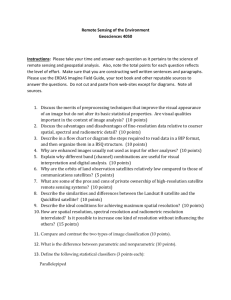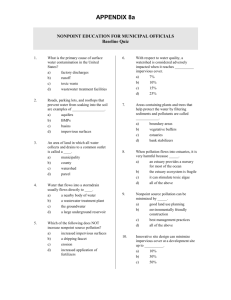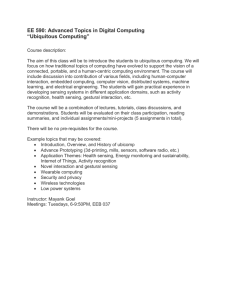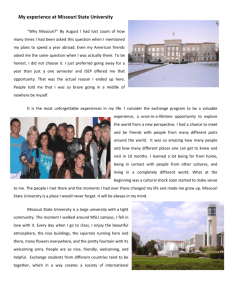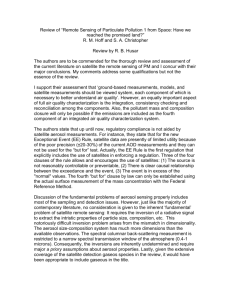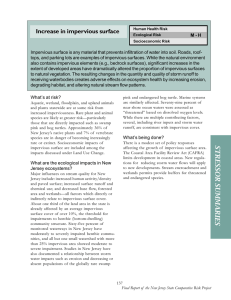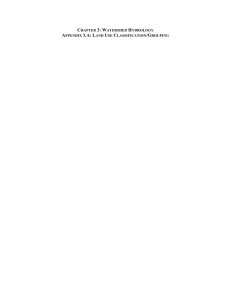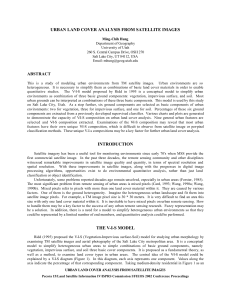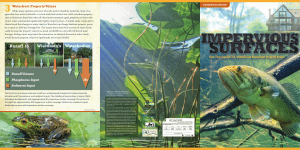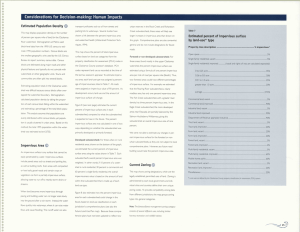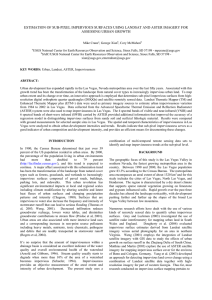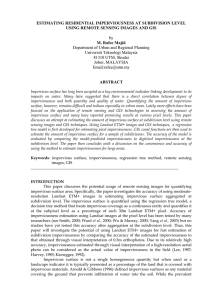IMPERVIOUS SURFACE MAPPING RELATED TO SPATIAL RESOLUTION OF REMOTE SENSING DATA
advertisement
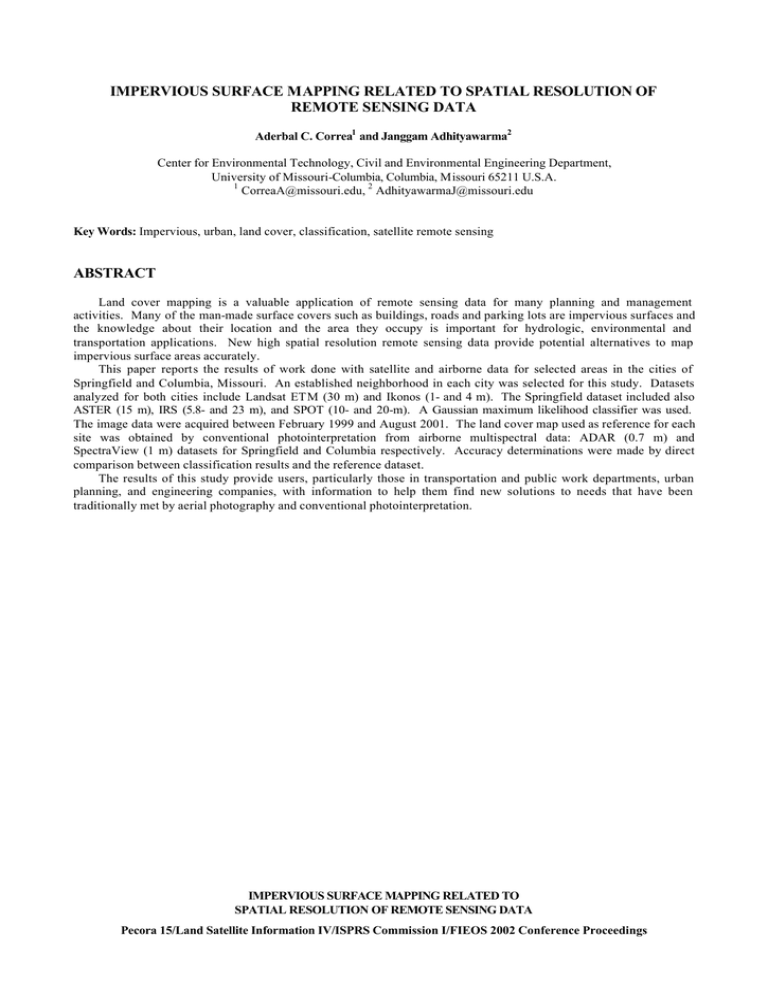
IMPERVIOUS SURFACE MAPPING RELATED TO SPATIAL RESOLUTION OF REMOTE SENSING DATA Aderbal C. Correa1 and Janggam Adhityawarma2 Center for Environmental Technology, Civil and Environmental Engineering Department, University of Missouri-Columbia, Columbia, Missouri 65211 U.S.A. 1 CorreaA@missouri.edu, 2 AdhityawarmaJ@missouri.edu Key Words: Impervious, urban, land cover, classification, satellite remote sensing ABSTRACT Land cover mapping is a valuable application of remote sensing data for many planning and management activities. Many of the man-made surface covers such as buildings, roads and parking lots are impervious surfaces and the knowledge about their location and the area they occupy is important for hydrologic, environmental and transportation applications. New high spatial resolution remote sensing data provide potential alternatives to map impervious surface areas accurately. This paper reports the results of work done with satellite and airborne data for selected areas in the cities of Springfield and Columbia, Missouri. An established neighborhood in each city was selected for this study. Datasets analyzed for both cities include Landsat ETM (30 m) and Ikonos (1- and 4 m). The Springfield dataset included also ASTER (15 m), IRS (5.8- and 23 m), and SPOT (10- and 20-m). A Gaussian maximum likelihood classifier was used. The image data were acquired between February 1999 and August 2001. The land cover map used as reference for each site was obtained by conventional photointerpretation from airborne multispectral data: ADAR (0.7 m) and SpectraView (1 m) datasets for Springfield and Columbia respectively. Accuracy determinations were made by direct comparison between classification results and the reference dataset. The results of this study provide users, particularly those in transportation and public work departments, urban planning, and engineering companies, with information to help them find new solutions to needs that have been traditionally met by aerial photography and conventional photointerpretation. IMPERVIOUS SURFACE MAPPING RELATED TO SPATIAL RESOLUTION OF REMOTE SENSING DATA Pecora 15/Land Satellite Information IV/ISPRS Commission I/FIEOS 2002 Conference Proceedings
